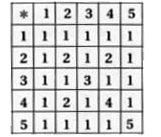Prove that the Greatest Integer Function , given by f(x) = [x] , is neither one - one nor onto , where [x] denotes the greatest integer less than or equal to x. Solution in Gujrati
Step by step video & image solution for Prove that the Greatest Integer Function f : R rarr R , given by f(x) = [x] , is neither one - one nor onto , where [x] denotes the greatest integer less than or equal to x. by Maths experts to help you in doubts & scoring excellent marks in Class 12 exams.
Topper's Solved these Questions
- BOOK - KUMAR PRAKASHANCHAPTER - RELATIONS AND FUNCTIONS EXERCISE - EXERCISE 1.329videos
RELATIONS AND FUNCTIONS
- BOOK - KUMAR PRAKASHANCHAPTER - RELATIONS AND FUNCTIONS EXERCISE - EXERCISE 1.425videos
RELATIONS AND FUNCTIONS
- BOOK - KUMAR PRAKASHANCHAPTER - RELATIONS AND FUNCTIONS EXERCISE - Practice Paper - 1 (Section - D)2videos
RELATIONS AND FUNCTIONS
- BOOK - KUMAR PRAKASHANCHAPTER - PROBABILITYEXERCISE - Practice Paper - 13 (Section - D (Answer the following questions))2videos
PROBABILITY
- BOOK - KUMAR PRAKASHANCHAPTER - THREE DIMENSIONAL GEOMETRYEXERCISE - PRACTICE PAPER -1116videos
THREE DIMENSIONAL GEOMETRY
Similar Questions
Let f:{1,3,4}→{1,2,5}andg:{1,2,5}→{1,3} be given by f={(1,2),(3,5),(4,1)andg{(1,3),(2,3),(5,1)} . Write down gof.
02:36View SolutionConsider a binary operation ∗ on the set {1,2,3,4,5} given by the following multiplication table.
(i) Compute (2*3)*4and2*(3*4)
(ii) Is ∗ commutative ?
(iii) Compute (2*3)*(4*5)
(Hint: use the following table )
 03:15View Solution
03:15View SolutionLet : f:N→N be defined by f(n)={n+12 if n is oddn2 if n is even for all n∈N .
State whether the function f is bijective . Justify your answer.01:54View SolutionIn a game, a man wins a rupee for a six and loses a rupee for any other number when a fair die is thrown. The man decided to throw a die thrice but to quit as and when he gets a six. Find the expected value of the amount he wins/loses.
02:57View SolutionFind the direction cosines of a line which makes equal angles with the coordinate axes.
02:35View SolutionProve that the Greatest Integer Function f:R→R,given by f(x)=[x], is neither one-one nor onto, where [x] denotes the greatest integer less than or equal to x.
04:52View SolutionIf the function f:R rarr R be such that f(x)=x-[x], where [x] denotes the greatest integer less than or equal to x, then f^(-1)(x) is
04:05View SolutionIf the function f:R rarr R be such that f(x)=x-[x], where [y] denotes the greatest integer less than or equal to y.then f^(1)(f) is
05:33View SolutionThe function of f:R→R, defined by f(x)=[x], where [x] denotes the greatest integer less than or equal to x, is
01:21View SolutionProve that the greatest integer function f:R→R, given by f(x)=[x], is neither one-one nor onto, where [x] denotes the greatest integer less than or equal to x.
04:12View SolutionProve that the greatest integer function f:R→R defined by f(x)=[x], where [x] indicates the greatest integer not greater than x, is neither one-one nor onto.
02:52View SolutionProve that the Greatest Integer Function f: R to R, given by f (x) =[x], is neither one-one nor onto, where [x] denotes the greatest integer less than or equal to x.
02:06View SolutionProve that the Greatest Integer Function f:R→R, given by f(x)=[x], is neither one-one nor onto, where [x] denotes the greatest integer less than or equal to x.
03:18View SolutionProve that the greatest function, f:R→R, defined by f(x)=[x], where [x] indicates the greatest integer not greater than x, neither one-one nor onto.
04:20View SolutionProve that the Greatest Integer Function f:R→R,given by f(x)=[x], is neither one-one nor onto, where [x] denotes the greatest integer less than or equal to x.
05:49View Solution

